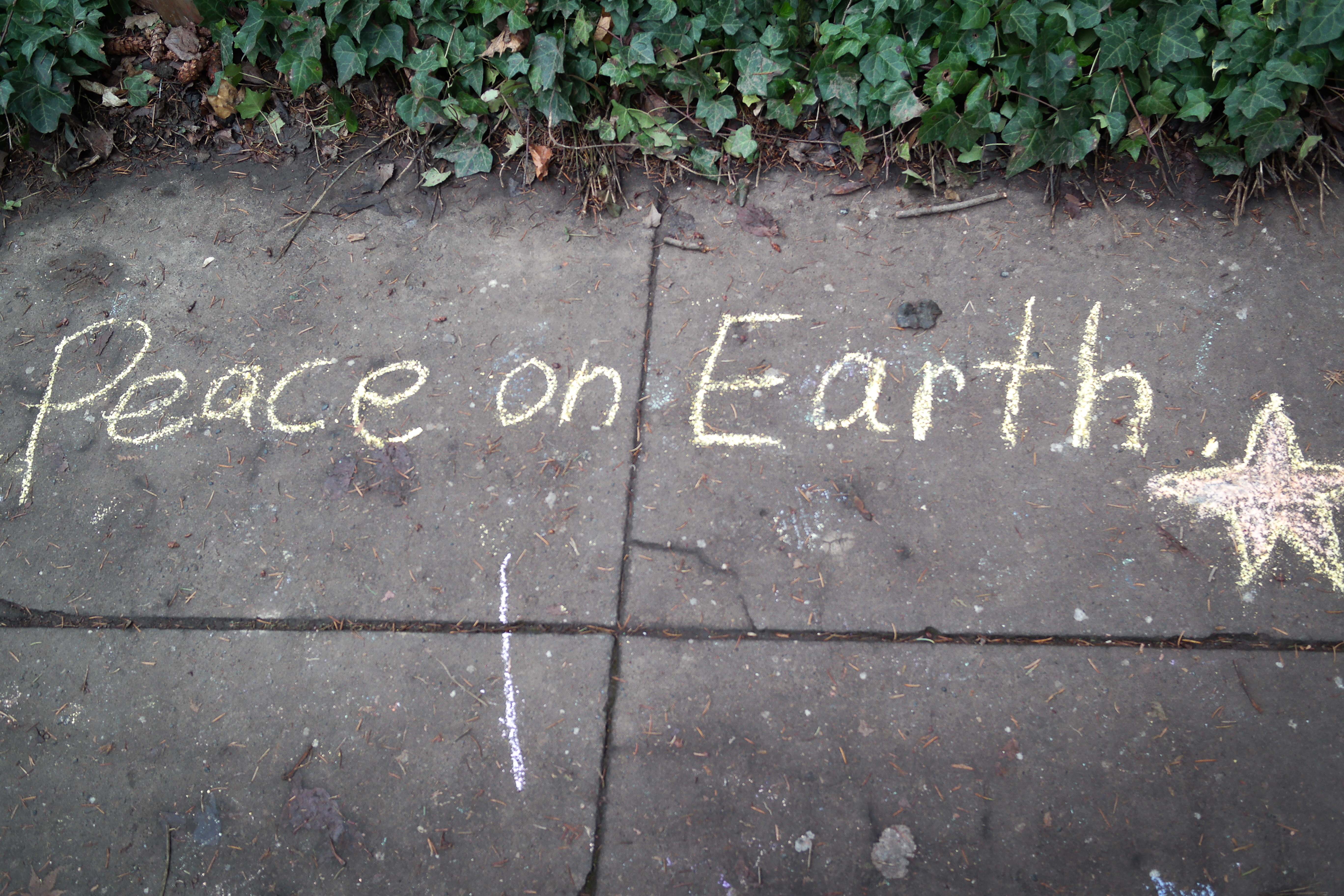October 22: “Its practice is more than our daily food.” –Gandhi (Harijan, April 2, 1938) A three-year old friend who recently learned about nonviolent non-cooperation at circle time at preschool was very excited when her parents told her the bread she was eating at dinner that night was called naan. “Wow!” She exclaimed. “We just… read more
Posts by Stephanie Van Hook
“A most useful phrase to try”–Daily Metta
October 21: “It remains to be seen if the so-called victors have won or whether they have not depressed themselves in seeking and trying to depress their enemies.” –Gandhi (Harijan, February 24, 1946) There’s a Zen story about a wise man whose refrain is a constant, “We’ll see.” The story goes that a young man… read more
Nonviolence is everywhere: Podcast

Nonviolence News, Songs and Analysis, Oh My! Want a dose of practical hope and a dash of fun? Today’s podcast is for you. Michael Nagler returns to explore all nonviolence happening all over the world, and Metta’s Education Director, Stephanie Knox-Cubbon joins Stephanie Van Hook and Michael in the studio with some of her own… read more
“What can replace war?”–Daily Metta
October 20: “The warring nations are destroying themselves with such fury and ferocity that the end will be mutual exhaustion.” –Gandhi (Harijan, February 24, 1946) War is costly, on an economic, human and even spiritual scale. Contrary to any myths we might still cherish about the institution, when we inflict violence to make ourselves more… read more
“Public prayer as a tactic”–Daily Metta
October 19: “The prayers of peace-lovers cannot go in vain.” –Gandhi (Harijan, February 24, 1946) Public prayer can be a powerful form of nonviolent action when used with discernment within a broader nonviolent strategy. One of Gandhi’s first calls to action in India, for instance, was a hartal, or ‘strike’, but in his interpretation a… read more
“The importance of patience”–Daily Metta
October 18: “Patience and perseverance, if we have them, overcome mountains of difficulties.” –Gandhi (Harijan, May 16, 1935) Aside from la-onf, which literally means ‘non-violence,’ Arabic has two other common terms for it, sabr and sumud, which mean, interestingly enough, ‘patience’ and ‘endurance, perseverance.’ Gandhi here offers us a gentle reminder of the same two… read more
“Why we offer nonviolence”–Daily Metta
October 17: “Satyagraha is an unmistakable mute prayer of an agonized soul.” –Gandhi (Harijan, February 24, 1946) No one offers Satyagraha because they like injustice or they just want to get involved in something cool, as though they had nothing else to do with their life. We do it because there is a great suffering… read more
“What democracy looks like”–Daily Metta
October 16: “Every village has to become a self-sufficient republic.” –Gandhi (Harijan, January 18, 1922) For democracy to be possible and independence meaningful, Gandhi was sure that it had to start at the bottom, from the villages, and build its way up. With each village as a “self-sufficient republic,” there would need to be work… read more
“A Syrian teacher’s Satyagraha”–Daily Metta
October 15: “That is the beauty of Satyagraha. It comes up to oneself, one has not to go out in search of it.” –Gandhi (Satyagraha in South Africa, p. xiv) It was the summer of 2013 when the Assad regime was forced out of the northeastern city of Raqqa, home of schoolteacher Souad Nofal. When… read more
“Gandhi in a nutshell”–Daily Metta
October 14: “Our bodies are the real temples rather than buildings of stone.” –Gandhi (Harijan, January 4, 1948) If there is one quotation of Gandhi’s that could rival the misattributed, paraphrase Be the Change that we all know and love, it’s this one from 1948. Uttered a couple of weeks before he shed his body,… read more







